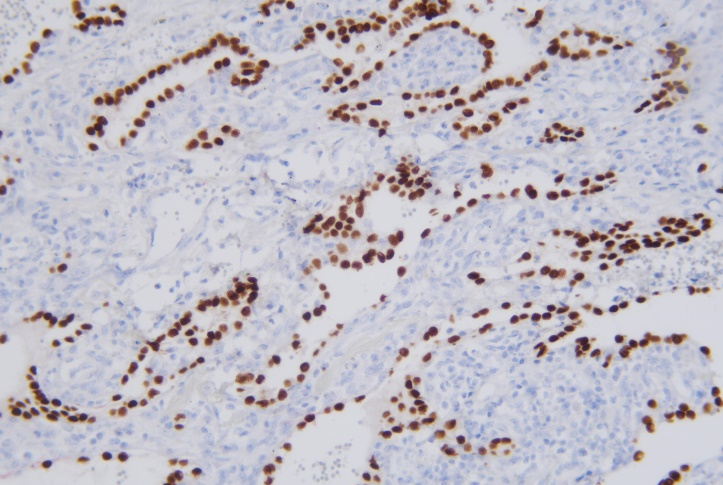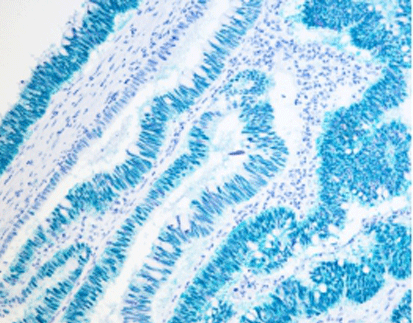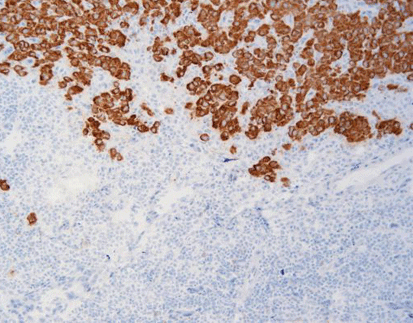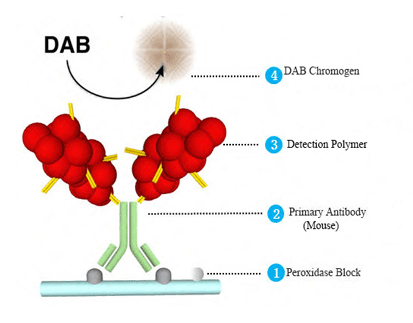 PRODUCT CATEGORY
PRODUCT CATEGORY
CONTACT US
Phone
Email
Address
Building 109, 1 Cuizhu Street, Zhengzhou, Henan, China
CK5/6/TTF-1 detection reagent (Immunohistochemical)
CK5/6/TTF-1 detection reagent (Immunohistochemical) is mainly used to qualitatively identify TTF-1 and CK5/6 proteins. Using immunohistochemical dual staining detection and multiple antibody combination technology, there are detected two antigen targets at the same time on the same sample tissue section by one staining process.
Specification
|
Model Number |
Specification |
|
SD8103 |
1mL/pcs; 3mL/pcs; 7/pcs |
This antibody is used with Immune Chromogenic Reagent (Dual Staining I) (SD8001)
Clone: C6H1/C1C8 + Mym1-TTF1
More Info
CK5/6 is mainly expressed in the cell membrane and cytoplasm of squamous epithelial cells or squamous cells. It is almost not expressed in glandular epithelium. CK5/6 has a good differential diagnosis effect for squamous cell carcinoma and adenocarcinoma.
TTF-1 is expressed in the nucleus of thyroid follicular epithelium and alveolar epithelial cells. It is the primary marker for the differential diagnosis of lung adenocarcinoma. TTF-1 is expressed in more than 70% of non-mucinous adenocarcinoma subtypes, small cell lung cancer, a small portion of undifferentiated large cell lung cancer and atypical carcinoids, a small number of typical carcinoids.
CK5/6 is a marker of mesothelioma. TTF-1 is almost not expressed in mesothelioma. Combined detection of the two markers can be used to differentially diagnose mesothelioma and lung adenocarcinoma. The combination of CK5/6 and TTF-1 antibody is used to detect most lung cancers, and only one target is positive. When the two antibodies are expressed together, it may be a sign of adenosquamous carcinoma. CK5/6/TTF-1 can help distinguish lung adenocarcinoma from lung squamous cell carcinoma.
lung squamous cell carcinoma TTF-1-nucleus (positive) CK5/6-cytoplasm (brown)
lung squamous cell carcinoma TTF-1-nucleus ((brown) CK5/6-cytoplasm (positive)









